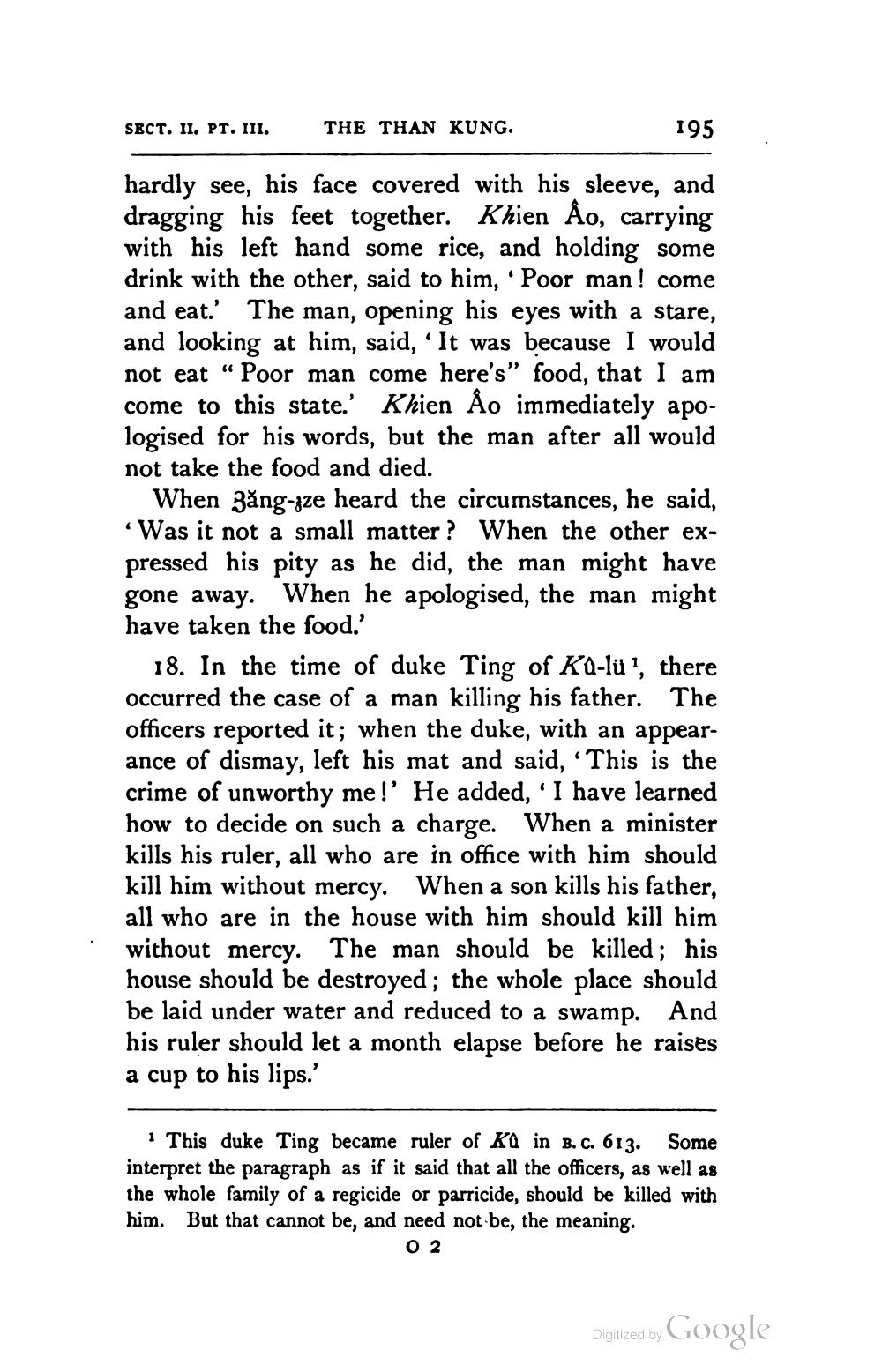________________
SECT. II. PT. III.
THE THAN KUNG.
195
hardly see, his face covered with his sleeve, and dragging his feet together. Khien Åo, carrying with his left hand some rice, and holding some drink with the other, said to him, ' Poor man! come and eat.' The man, opening his eyes with a stare, and looking at him, said, 'It was because I would not eat “Poor man come here's” food, that I am come to this state.' Khien Åo immediately apologised for his words, but the man after all would not take the food and died.
When 3ăng-xze heard the circumstances, he said, Was it not a small matter? When the other expressed his pity as he did, the man might have gone away. When he apologised, the man might have taken the food.'
18. In the time of duke Ting of Ka-lü, there occurred the case of a man killing his father. The officers reported it; when the duke, with an appearance of dismay, left his mat and said, “This is the crime of unworthy me!' He added, I have learned how to decide on such a charge. When a minister kills his ruler, all who are in office with him should kill him without mercy. When a son kills his father, all who are in the house with him should kill him without mercy. The man should be killed; his house should be destroyed; the whole place should be laid under water and reduced to a swamp. And his ruler should let a month elapse before he raises a cup to his lips.'
This duke Ting became ruler of Ka in B. C. 613. Some interpret the paragraph as if it said that all the officers, as well as the whole family of a regicide or parricide, should be killed with him. But that cannot be, and need not be, the meaning.
O2
Digitized by Google




